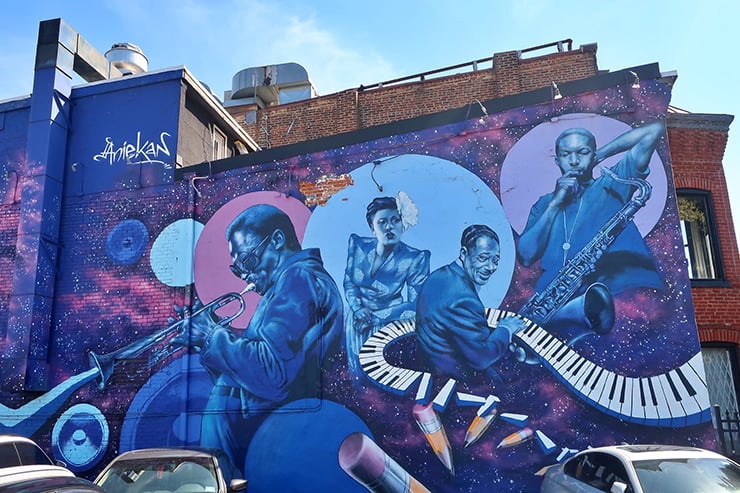- BlackVoter.Org
- Posts
- BlackVoter.Org
BlackVoter.Org


In "Casting Off the Oppression of the Race Hustle," Mark Judge reflects on Jason L. Riley's compelling book, The Affirmative Action Myth, which argues that Black Americans historically thrived through cultural and familial stability rather than government interventions.
Judge recounts attending a symposium where elderly African Americans joyfully remembered their community's vibrancy during segregation, challenging the narrative of perpetual victimhood often perpetuated by modern "race hustlers." Riley presents a wealth of evidence showcasing the significant advancements made by Black Americans before the rise of affirmative action and social welfare programs, emphasizing that the breakdown of family structures correlated with increased societal issues.
He criticizes current ideologies that frame success through the lens of oppression, warning that such beliefs hinder real progress. Ultimately, the article champions resilience and personal responsibility over dependency on government solutions, igniting a crucial conversation about race, family, and empowerment in today’s society.

In a thought-provoking piece, Damon K. Jones tackles the division within Black communities fueled by conflicting narratives from the so-called "Black Rednecks" and the Black elite.
He argues that while both sides claim to champion Black voices, they often perpetuate division rather than unity. The "Rednecks" criticize others for supporting Black businesses, while the elite prioritize academic accolades over tangible community solutions.
Jones highlights the missed opportunities for advocating reparations and meaningful economic empowerment that could break the cycle of systemic poverty and disenfranchisement. Instead of fostering cooperation, these figures engage in a contentious blame game, leaving pressing issues—like failing education systems and declining homeownership—unaddressed.
Jones calls for a shift in focus from personalities to the practical impacts of leadership, urging the community to demand authentic change. By rallying around concrete goals rather than divisive rhetoric, he believes real empowerment is possible for Black Americans.


In her thought-provoking article, Marlies Murray critiques the Democratic Party’s failure to resonate with the American populace, particularly the disillusioned working class. With a sharp focus on the need for a transformative vision, she argues that the party has become too alienating, leaning excessively on identity politics that don’t represent the majority.
While the MAGA movement has effectively captured the aspirations of many by promising a revival of the American Dream, the Democrats risk losing their footing unless they dare to dream big. Murray calls for systemic change that embraces a broader array of voices and boldly redefines a more attainable American Dream—one that genuinely addresses the struggles of everyday citizens.
With current leadership lacking vision, she urges progressives to unite behind a holistic, anti-establishment approach that reaches beyond traditional demographics, reigniting hope among those who feel left behind. It’s a rallying cry for change at a pivotal moment in American politics.

The China-Nigeria partnership is undergoing a transformative shift, moving from a trade-heavy focus to a robust development model. Under President Bola Tinubu, Nigeria is strategically recalibrating its foreign policy to leverage its relationship with China for industrial growth and infrastructure development.
Notably, Nigeria is China's largest engineering contract recipient in Africa, emphasizing its strategic importance. This shift aligns with China's broader global south strategy, aiming for mutual benefit through infrastructure investments and technological collaboration.
Key projects, including railway expansions and energy initiatives, demonstrate deepening ties. However, challenges such as trade imbalances and domestic regulatory issues persist.
Amid the backdrop of U.S.
-China tensions, Nigeria seeks to diversify its partnerships while asserting its agency in engagement with China. This evolving relationship may signify a new era in international diplomacy, marked by balanced, reciprocal engagements fostering sustainable development and economic resilience.

In a poignant piece, Dr. Yarimar Bonilla reflects on the recent blackout in Puerto Rico, which coincided with Holy Week and struck a nerve across the island and its diaspora.
One heart-wrenching image captured the despair: a woman desperately powering her respiratory machine in a supermarket, symbolizing a larger systemic failure. Bonilla recounts her emotional phone conversations with her mother, who expressed deep frustration over her struggles amidst a crumbling infrastructure.
The blackout isn’t just a power outage; it highlights the collapse of Puerto Rico’s colonial promise of stability and security under U.S.
governance. As the island faces continuous crises—from natural disasters to economic decline—Bonilla suggests that these failures could galvanize Puerto Ricans to seek a new destiny, rejecting an outdated colonial bargain.
With each blackout illuminating the island's struggles, the call for a redefined political future grows louder.

In a controversial move, U.S.
President Donald Trump has proposed the closure of several embassies and consulates, heavily impacting six African nations: Central African Republic, Eritrea, Gambia, Lesotho, the Republic of Congo, and South Sudan. Additionally, consulates in Cameroon and South Africa are set to close.
This decision means that obtaining U.S.
visas for citizens from these countries is likely to become more time-consuming and expensive, raising alarm among observers and experts. The implications extend beyond travel; with embassies in critical regions shuttered, Americans may face challenges in diplomatic relations and assistance.
Critics argue this could diminish U.S.
influence compared to China's growing presence in Africa, complicating efforts to maintain soft power in an increasingly competitive international arena. As students and professionals find it harder to secure visas, America's openness becomes a pressing issue, directly affecting potential ties with the next generation.

Activist Danielle Moodie is challenging Americans to “unlearn all the lies” woven into the fabric of the nation’s identity and values. In a compelling Instagram video, Moodie critiques the myth of American exceptionalism, pointing out the systemic greed and wealth inequality that plague the country.
She argues that the notion of the “American dream” is a facade that leaves many, especially marginalized communities, grappling with stagnating wages and inadequate social services. Despite her invigorating critique of capitalism, Moodie’s message hints at deeper racial injustices that have long been overlooked in the dialogue about America’s shortcomings.
She urges viewers to confront uncomfortable questions about healthcare and education in the U.S.
, emphasizing the need for accountability and reform. While her call to action resonates widely, it invites a necessary conversation about the racial disparities that continue to shape the American experience.
Moodie's passionate plea for change moments a clear vision for a more equitable future.